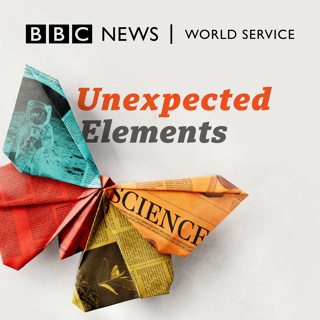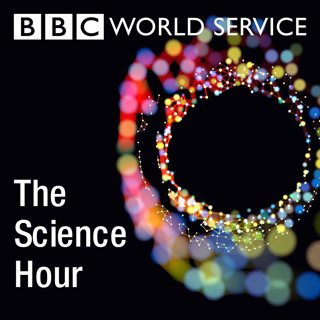
Why we need to talk toilets
To mark UN World Toilet Day on 19 Nov, Alex Lathbridge discusses all things toilet related with Andrada Fiscutean and Tristan Ahtone, as they attempt to lift the lid on our collective taboo of discussing sanitary matters.In 2020, 3.6 billion people – nearly half the global population – lacked access to safely managed sanitation. Diseases such as cholera, typhoid, dysentery, and diarrhoea can spread amongst populations who still practice open defecation. And lack of access to a functioning toilet disproportionately affects women.But even if you do have access to a flushing toilet, do you always close the lid? Researchers have measured the invisible aerosol plumes that rise up from the pan of an uncovered toilet flush, potentially spreading other communicable diseases including respiratory infections including even SARS-CoV2.But flushing toilets are resource heavy. A normal flush can use 5l of water. Could they be re-conceived?Prof Shannon Yee of Georgia Tech swings my to give us the latest on the “Reinventing the Toilet” project. Next March they hope to unveil the production model of the second generation reinvented toilet (“G2RT”). Much like other household appliances, it could run from a domestic power source, yet turn a family’s faecal matter and urine into clean water and a small amount of ash, with out the need for the grand and expensive sewage infrastructure required by more normal flushing cisterns.In the black sea meanwhile, AI is being deployed to track the dwindling populations of the beluga sturgeon, from whom the luxury food caviar is harvested.We discuss sightings of cryptids (mythical or scarcely believable animals) you have sent us, and after the announcement of the rediscovery of a rare echidna species in Indonesia, we look at how conservation and natural history expeditions have changed over the course of the broadcasting career of Sir David Attenborough. Presenter: Alex Lathbridge, with Andrada Fiscutean and Tristan Ahtone Producer: Alex Mansfield, with Margaret Sessa Hawkins, Dan Welsh and Ben Motley
16 Nov 202350min

Working 70 hours a week
This week on the show with the science behind the news, we’re looking at a story that has sparked a debate in India about a 70-hour work week.In an interview, the billionaire NR Narayana Murthy said that young people should be ready to work 70 hours a week to help the country's development, suggesting that unless productivity improved, India would not be able to compete with other countries.But if you work twice as long, do you get twice as much done? The Unexpected Elements team on three continents look at research that sheds light on whether a 70 hour working week is actually as productive as Mr Murthy suggests.And if you’re working all the time there’s less time for sleep – we hear about the marine mammals that manage on 2 hours a day, and the Inuit hunters in northern Canada who follow a similar pattern.We’re also joined by Environmental Economist Matthew Agarwala, wondering whether traditional notions of productivity ignore the issues of the climate and well-being.Our ‘Under the Radar’ story this week is from Kenya, where Trachoma - a bacterial infection – is still causing people to become blind. It’s one of a group of a diseases known as ‘neglected tropical diseases’, but why are they neglected, and what can we do about it?In ‘Ask the Unexpected’ a listener wonders why eating makes some pregnant women sick and not others. We ask an expert for the answer, and we discover that the menopause is not as unique to humans as we used to think.All that plus your emails and messages, including a listener who left a cult as a result of learning another language, and the mystery of the Eastern Australian Panther.Presented by Marnie Chesterton, with Phillys Mwatee and Meral Jamal.Produced by Ben Motley, with Alex Mansfield and Tom Bonnett.
9 Nov 202350min

Scary science
In the week where many celebrated Halloween we are wondering about that tingle down your spine, the dryness in your mouth, the racing pulse - might it actually be good for you? We also look into a special frequency of sound, just below our human hearing range, that might cause rational people to start feeling spooky.And we explore Cryptids and the zoology of creatures that don’t really exist. Plus, if you’re bilingual, do you really have a first and second language? We also explore why driving a taxi is a workout for your brain and look at the benefits and pitfalls of cycling around the world.Presenter: Marnie Chesterton, with Camilla Mota and Godfred Boafo.Producer: Margaret Sessa-Hawkins, with Alex Mansfield, Tom Bonnett and Ben Motley
2 Nov 202350min

Fashion to dye for
Lagos Fashion Week makes some unexpected connections to vegan wool, 1920s car marketing, and Right to Repair legislation. If we consider our obsession with the clothes we wear to be some result of sexual selection, do any other animals evolve their self-expression with such frequency? Dr Ellen Garland of St Andrew’s University tells how male humpback whales change their song with surprisingly infectious rapidity, and talks us through some recent hits. Also, some catalytic promise for wastewater management, and how choosing a language in which to think changes your decision making. Plus, this week’s messages from you, and can poetry help science?Presenter: Caroline Steel, with Chhavi Sachdev and Godfred Boafo Producer: Alex Mansfield, with Tom Bonnet and Margaret Sessa-Hawkins
26 Okt 202350min

Putting Madonna to the test
According to the pop icon Madonna, music makes the people come together. But can we prove that using science?As Madonna embarks on her greatest hits world tour, the Unexpected Elements team on three continents take some of those hits and examine the science behind them.Like a Virgin take us on an excursion into parthenogenesis, and the Komodo Dragons that can reproduce without the inconvenience of having to find a mate.Madonna sung about travelling ‘quicker than a ray of light’, but is that actually possible? We take a very fast trip through the strange world of warp bubbles.And we Get Into the Groove with the physicist who created a record so tiny it fits into one of the grooves of a normal record.We also hear about the “find your ancestry” kits that have the capacity to solve so-called cold cases, identifying unknown human remains often decades old. With the eyes of the world on events in Gaza, we discover how tech can help make sure that any reportage – video or photos – are accurate and not doctored. All that plus your emails and WhatsApps, and a listener wonders whether fish can drown.Presented by Marnie Chesterton, with Philistiah Mwatee and Katie Silver Produced by Ben Motley, with Alex Mansfield, Tom Bonnett, Sophie Ormiston and Margaret Sessa Hawkins
19 Okt 202350min

How bedbugs took over the world
How did bedbugs become a global concern? We examine why their unconventional reproduction methods are so successful, how bedbugs and humans even crossed paths in the first place and what public health has to do with nation building.Also on the show, we look at why there's no human version of dog food, how conspiracy theories take hold, and the legal wranglings over an old Canadian oil pipeline.
12 Okt 202353min

Complete shutdown
How would it feel wake up years later? After the US narrowly avoided a government shutdown, we look at how complicated systems - such as living things - can just press pause.Could humans ever hibernate like bears and squirrels? Or even like simpler animals that can be revived after 46,000 years.Also, which way does antimatter fall under gravity? And how might IVF save a functionally extinct species of rhino?Presenter: Caroline Steel, with Chhavi Sachdev and Philistiah Mwatee. Producer: Alex Mansfield, with Margaret Sessa-Hawkins, Ben Motley and Sophie Ormiston
5 Okt 202350min

How inflation affects the entire cosmos
This week on the show that brings you the science behind the news, there are lots of stories about inflation in economies across the world. When inflation happens your money doesn’t go as far, so what does psychology say about how much money you really need to make you happy? We humans aren’t the only ones experiencing inflation either, trees are suffering from it too. We find out what happens when the balance of supply and demand of nutrients between trees and fungi is disrupted by climate change.And then we take a look at the bigger picture - the much bigger picture - as cosmologist Ghazal Geshnizjani tells us about how the entire universe once existed in a space smaller than a marble.Plus, are Romanian bear populations inflating? We probe a scientist about spider webs – why do they look the way they do? And we look at vaping – it’s illegal in some countries while smokers in other countries are encouraged to take it up. All that plus your emails, WhatsApps and some unexpected elephants.Presenter: Caroline Steel, with Godfred Boafo and Andrada Fiscutean.Produced by Ben Motley, with Alex Mansfield, Sophie Ormiston and Margaret Sessa Hawkins.
28 Sep 202350min





















